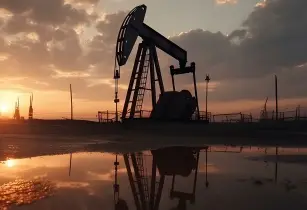The drilling of production wells for the Kingfisher and Tilenga oil production projects is continuing since the launch in January
This is in preparation for the planned commencement of oil production in Uganda in 2025.
Drilling of the first well for the Kingfisher field has been completed to a total depth of about 3000 m, and the LR8001 rig is now at the location for the second well. For the Tilenga project, the initial phase, will see the drilling of 12 development wells on the Jobi-5 well pad, which is part of the Tilenga oil fields.
The Uganda oil project envisions drilling over 450 wells on 35 well-pads, leading to an estimated production of 230,000 bopd, at its peak once production commences. Production from the multiple fields, that include Kingfisher, Jobi Rii, Ngiri, Kasamene-Wahrindi, Gunya, Nsoga, and Kigogole, will contribute to this substantial output.
Ernest Rubondo, executive director at the Petroleum Authority of Uganda, said, “The drilling of production wells is proceeding as planned towards first oil in 2025. The oil and gas activities especially the development of infrastructure worth over US$15bn in the country before commencement of production, together with the expected annual revenues in excess of US$1bn is beginning to significantly impact the country’s economy. Oil production in the country is expected to peak at 230,000 bopd."
Alex Nyombi, the director of development and production at the Petroleum Authority of Uganda, said, “Three rigs have been designated for the drilling operations on the Tilenga project. Presently, SINOPEC 1501 is operational at the Jobi-5 well pad, and commenced drilling operations on 28 June. The second rig is undergoing final tests at the Ngiri 3 well-pad before commencing drilling, while the third rig is being assembled and is expected to commence operations in October 2023. For the Kingfisher Project the LR8001 rig has been operational since January. Both rigs have noise suppressing technology, are fully automated and environmentally friendly."
Uganda's commitment to sustainable and responsible resource extraction is shown in the design of the drilling rigs. Employing innovative technologies and eco-conscious practices, the rigs are designed to minimise the environmental footprint, ensuring a positive impact on the ecosystem, and setting a precedent for future generations.
The proactive measures in scheduling the drilling operations will ensure at least 70 wells are in place by 2025, facilitating the projected commencement of commercial production. During the next 25 years, this development will provide a boost to investment in other sectors of the economy, bringing a potentially transformative impact for many Ugandans and the country at large.
To ensure the economic benefit from the project’s construction is spread widely, Uganda has set National Content Development targets. These mandate that at least 40% of the amount spent remains within the country’s economy through the use of Ugandan goods and services and by training Ugandans to undertake the work. The government is also strengthening links between the new oil sector and existing parts of the economy, such as agriculture, tourism, manufacturing and education. As a result of the government’s initiatives, it is calculated there will be in total an US$8bn boost to local businesses during the four-year construction period.
Uganda presently stands 132nd out of 221 nations in the Global Carbon Atlas with present annual emissions of just 4.9 MtCO2. Uganda presently stands 171st for GDP per capita according to the latest International Monetary Fund World Economic Outlook. France is 24th, the United Kingdom 22nd, the United States 5th and China 63rd.
Uganda’s oil projects are a collaborative effort between TotalEnergies EP Uganda B.V (TEPU), CNOOC Uganda Limited, and the Ugandan government, with the key facilities for the project encompassing the Central Processing Facility (CPF), well pads, flowlines, lake water abstraction, and other vital components.








